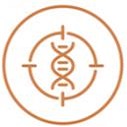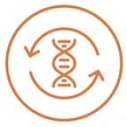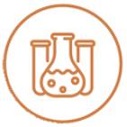Immunomics Services
Omics Analysis Services
The immune system is highly complex, distributed throughout the organism, with hundreds of cellular states existing in parallel with different molecular pathways, interacting in a highly dynamic and coordinated manner. High-throughput, high-resolution holography facilitates new insights into the dynamics of the immune system to complement traditional immunological approaches. CD Genomics provides various types of omics analysis services to help our clients form diverse networks.

Immunogenomics Services
Immunogenomics including whole genome sequencing, whole exome sequencing, next generation sequencing (NGS), and genotyping microarrays, are cost-effective solutions for population genetics to understand the key factors that influence the human immune system.

Immune Cell Epigenomics Analysis
Epigenomics is the study of the complete epigenetic modification of cellular genetic material, a discipline used to help us decipher dynamic gene expression processes and immune processes.

Immune Cell Transcriptomics Analysis
Transcriptomics is the study of changes in total RNA expression in health and disease states, a discipline that helps us better understand the mechanisms of change in the individual immune system.

Immune Cell Proteomics Analysis
Proteins are the main carriers of life activities and are closely related to the expression of cellular phenotypes, and the study of proteomics can provide intuitive clues about the behavior and function of immune cells.
Why Choose Us
CD Genomics brings together experts in a variety of omics studies and those focused on the immune system. Based on top-notch instruments, we help our clients to construct the developmental processes of the immune system and the routes of immune responses. Please contact us for more information.
